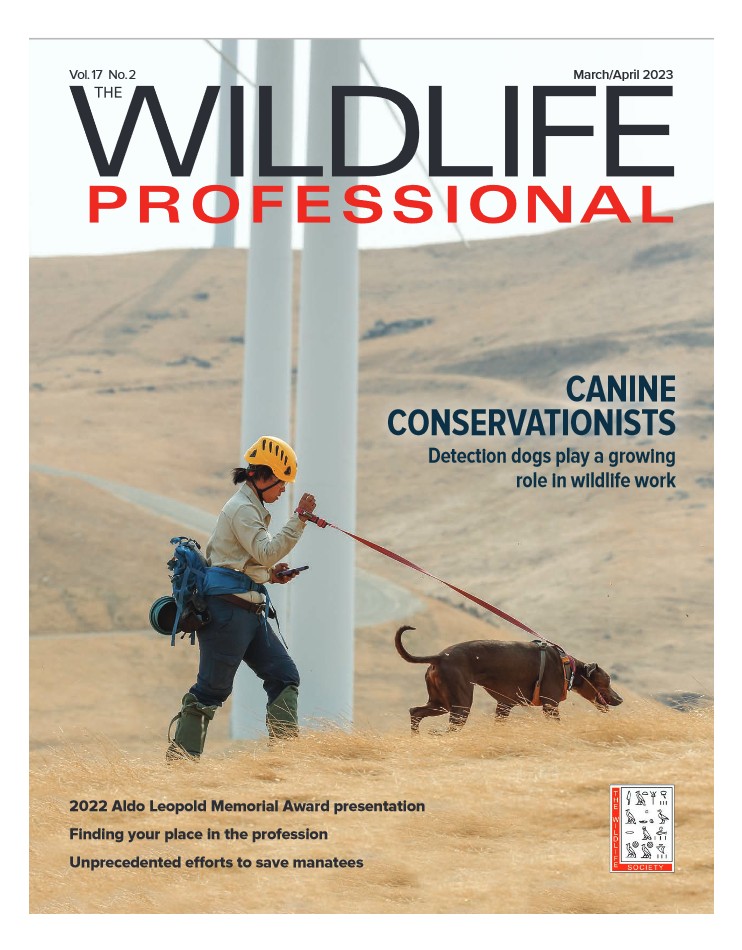Suzanne Banks published in The Wildlife Professional
Miami University graduate Suzanne Banks ‘22 of East Northport, New York, was published in the March/April 2023 issue of The Wildlife Professional....
Suzanne Banks published in The Wildlife Professional
 Miami University graduate Suzanne Banks ‘22 of East Northport, New York, was published in the March/April 2023 issue of The Wildlife Professional, a science-based magazine from The Wildlife Society (TWS). TWS is an environmental conservation organization committed to addressing national and international issues affecting wildlife in North America and throughout the world.
Miami University graduate Suzanne Banks ‘22 of East Northport, New York, was published in the March/April 2023 issue of The Wildlife Professional, a science-based magazine from The Wildlife Society (TWS). TWS is an environmental conservation organization committed to addressing national and international issues affecting wildlife in North America and throughout the world.
Banks’ 4-page original research article, “Green Messaging in Red and Blue States”, explores strategic environmental advocacy and communications — particularly how conservation organizations may channel target audience values to maximize engagement.
She earned a Master of Arts (M.A.) in the biological sciences from Miami through Project Dragonfly‘s Global Field Program (GFP) and holds a previous M.A. in public policy from Stony Brook University and a bachelor’s degree in sociology and psychology from Hofstra University. While earning her degree at Miami, Suzanne interned at World Wildlife Fund (WWF) and Wildlife Conservation Society (WCS) within their policy and advocacy teams. She also completed an intensive federal directorate fellowship at the U.S. Fish and Wildlife Service (USFWS) and performed subsequent contract work for the agency’s Office of Communications.
Banks’ international fieldwork with Project Dragonfly included examining the forces of evolutionary, geologic, and social change on the ground in the Galapagos. As part of her online coursework, she developed action projects in cooperation with global conservation leaders. Banks had the unique opportunity to work on dynamic collaborative conservation campaigns supporting Earth Expeditions partner organizations in India (Applied Environmental Research Foundation) and Australia (Great Barrier Reef Marine Park Authority). As a GFP student, Banks connected many of her master’s assignments into her professional work and conducted projects that made a difference in the Long Island area.
Throughout her time in the GFP, Banks developed a Master Plan, a kind of personal mission statement for what she wanted to accomplish in the program. In many of her master's courses, Banks designed projects that supported this plan, which culminated in a final portfolio, “Selling” Conservation Strategically Doesn’t Require Changing Minds, presented in a Capstone course.
